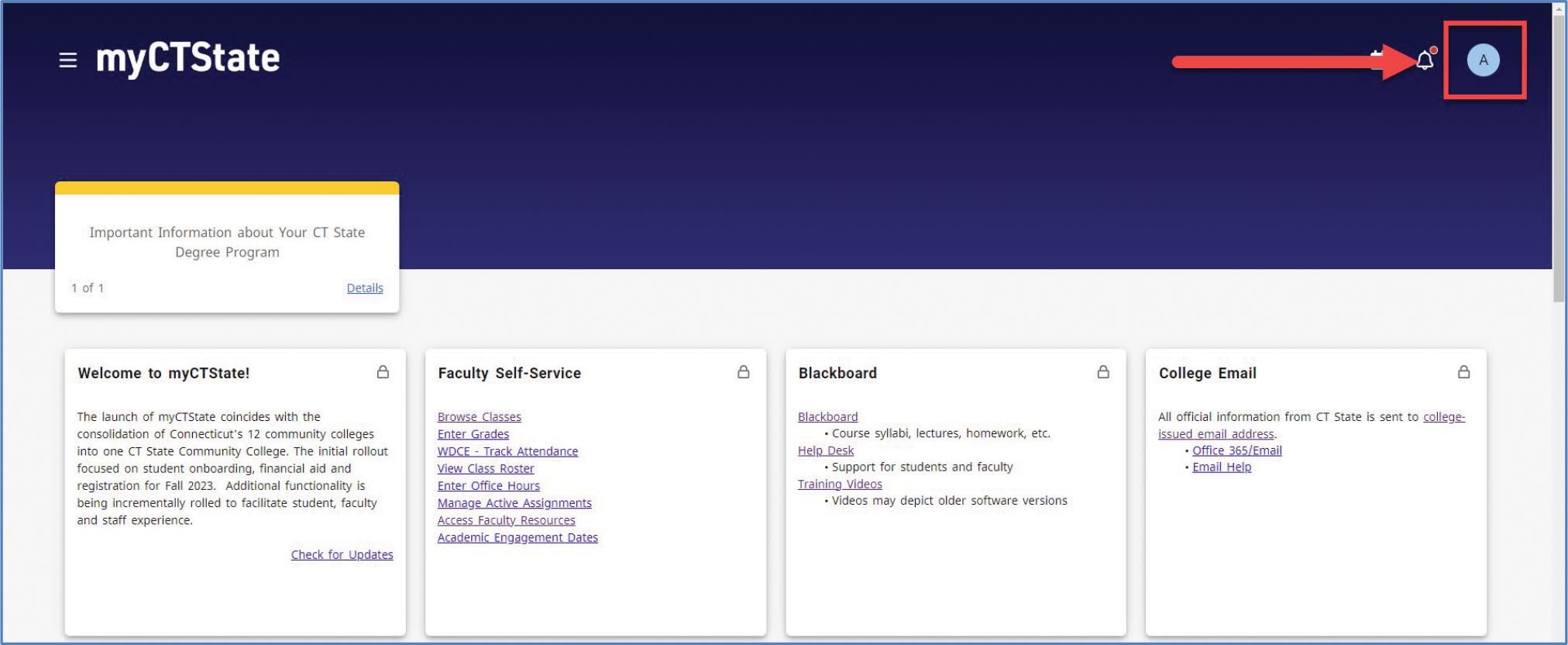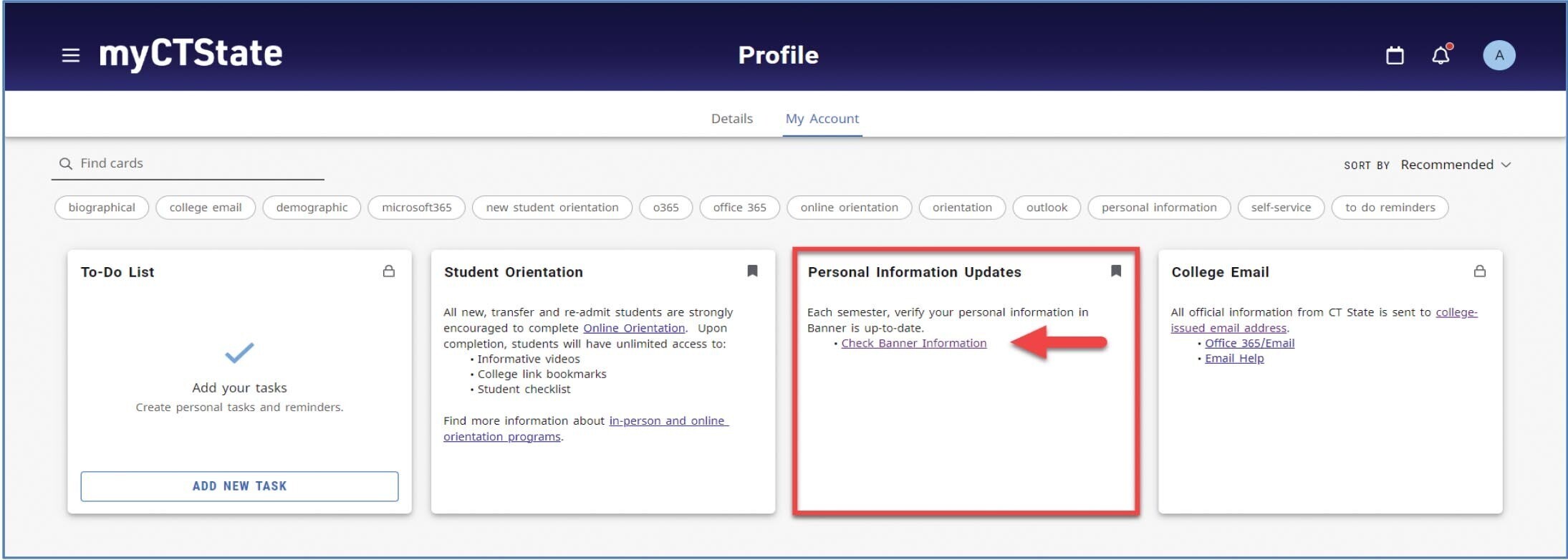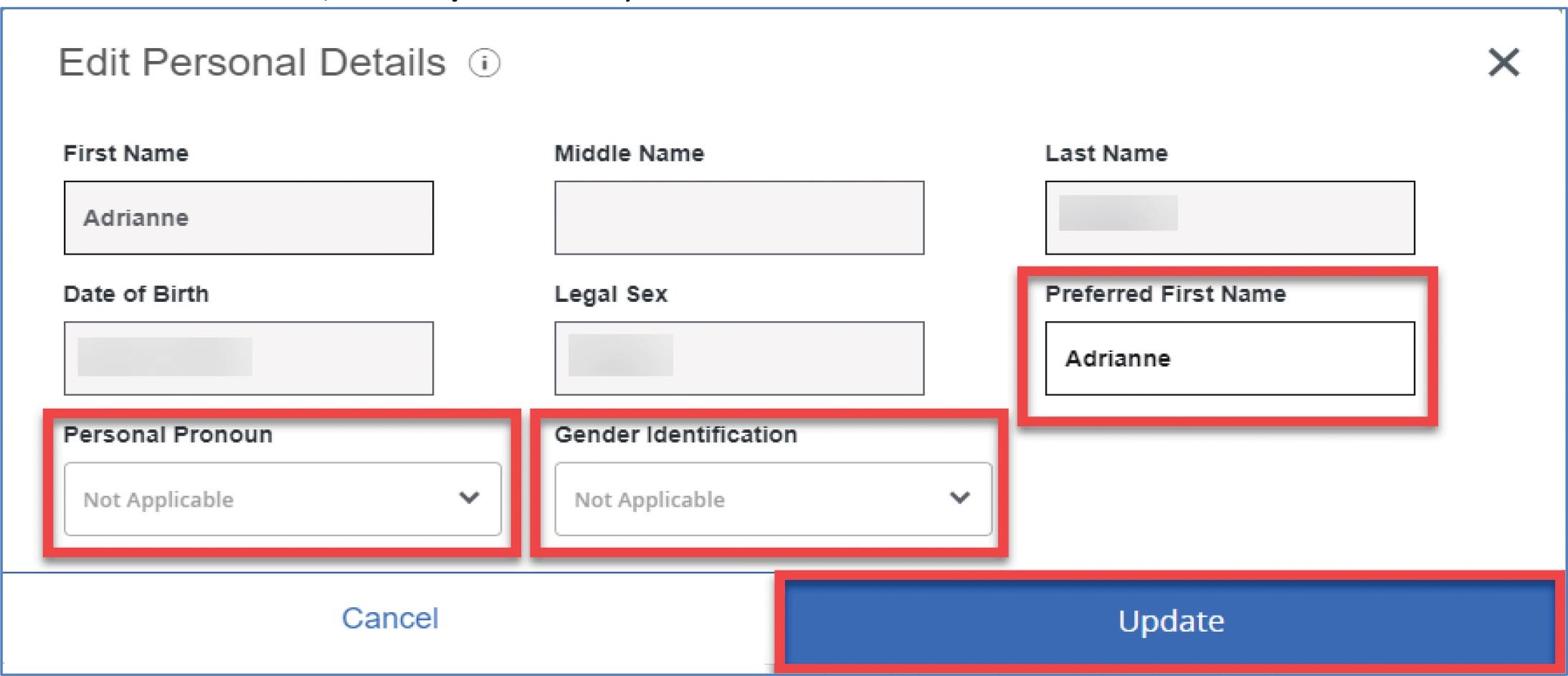Access Your Student Schedule on myCTState
- Temp Last Modified: 2024-03-25
This page will walk you through the steps to access your student schedule on the myCTState portal. If you registered at a one-stop and are told to go online to view/print your schedule or if you registered yourself online and want a copy of your current schedule, please follow these directions.
Step 1
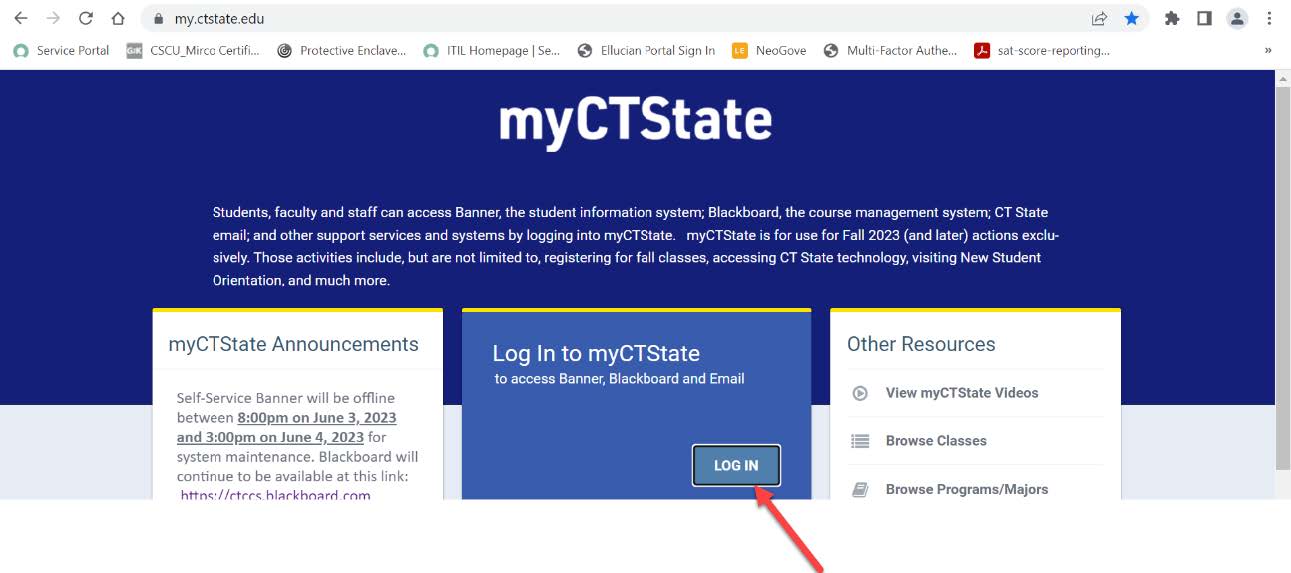
Step 2
Once in myCTState, navigate to the card titled “Student Self-Service.”
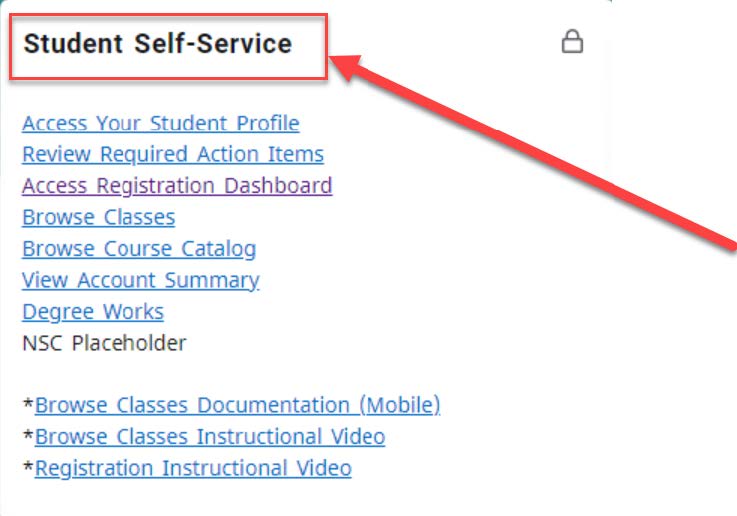
Step 3
On this card, click the link titled “Access Registration Dashboard.” This link will take you to a new menu which will display all your registration options such as the course search, registration page, and view your registered CURRENT or past course schedule(s).
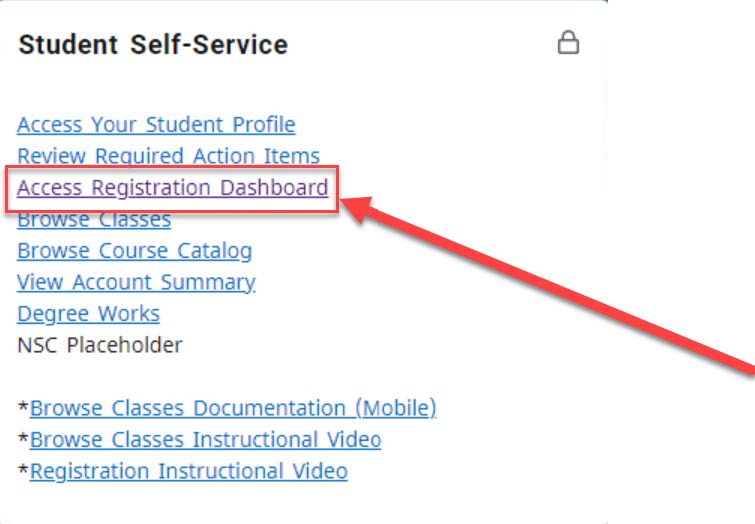
Step 4
To view your current and past course schedules, click on the link titled “View Registration Information.”
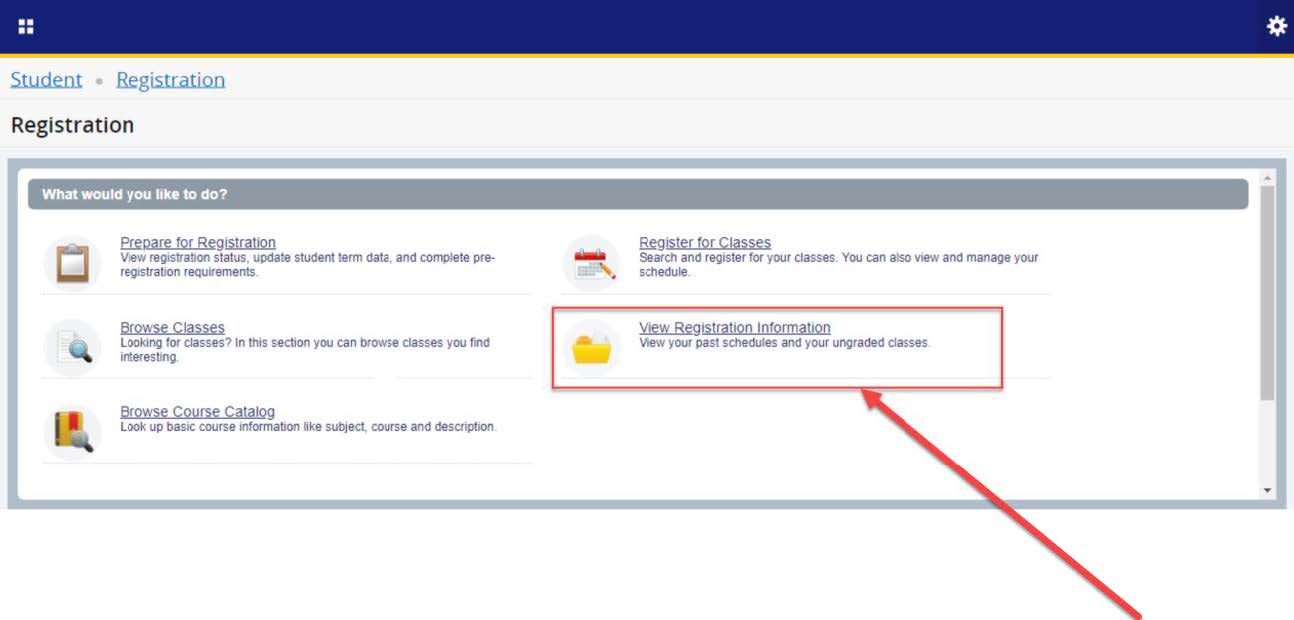
Step 5
Select the term of the schedule you want to view using the dropdown menu.
You also have the option on this screen to email or print your schedule.
Email: Email yourself a copy of your schedule or email a copy of your schedule to someone else.
Print: Print a copy of your schedule.
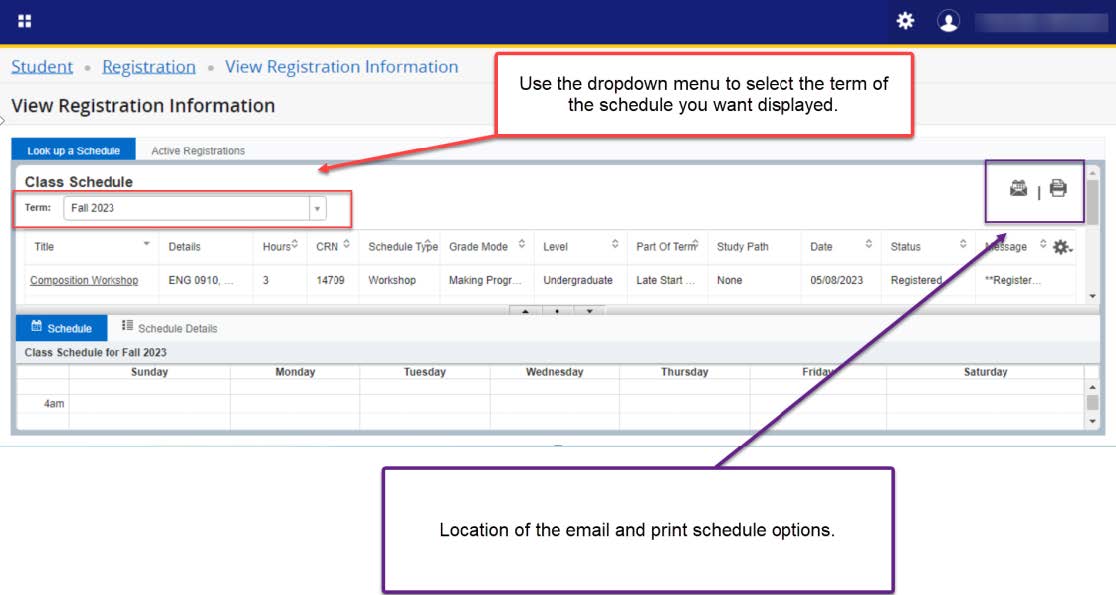
Step 6
To view a detailed copy of your course schedule, click on the tab titled “Active Registrations” (use for the current registration term) or “Schedule Details” (use for the current or past registration terms).
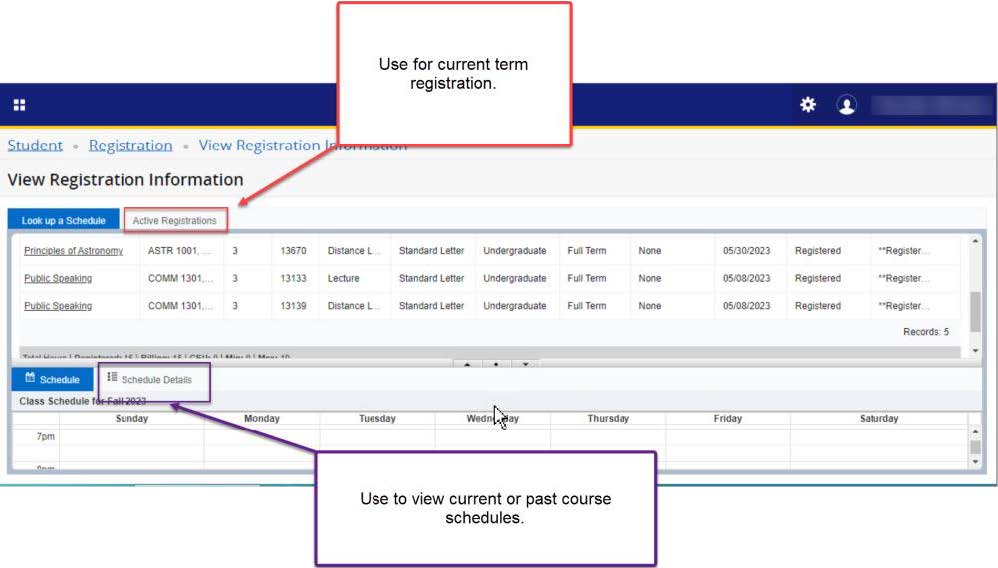
This screen will also display your course by day and time within a week.
Key
Information Displayed on both the “Active Registration” and “Schedule Details” Tabs
Term: Semester and year the course is held during
CRN (course registration number): The course registration code
Status: Your status in the course and the date that status was applied
Schedule Type: Course format
Hours: Number of scheduled hours for the course
Instructional Methods: Course instructional method
Campus or Campus Location*: Where the course is held
Start Date: The start of semester term date when the course officially begins
End Date: The end of semester term date when the course officially ends
Level: The course for credit, which will be undergraduate or for non-credit, which will be workforce development
Instructor: Name of the person teaching the course
Grade Mode: How course is graded. Either traditional letter grade or by other modes
*Please note the campus location on your schedule especially if you are taking courses at multiple campuses. The Active Registration tab and the Schedule Detail tab use slightly different wording for the course instruction location. Active Registration has the word “Campus,” and Schedule Details has the word “Campus Location.”
“Active Registration” Course Information Displayed
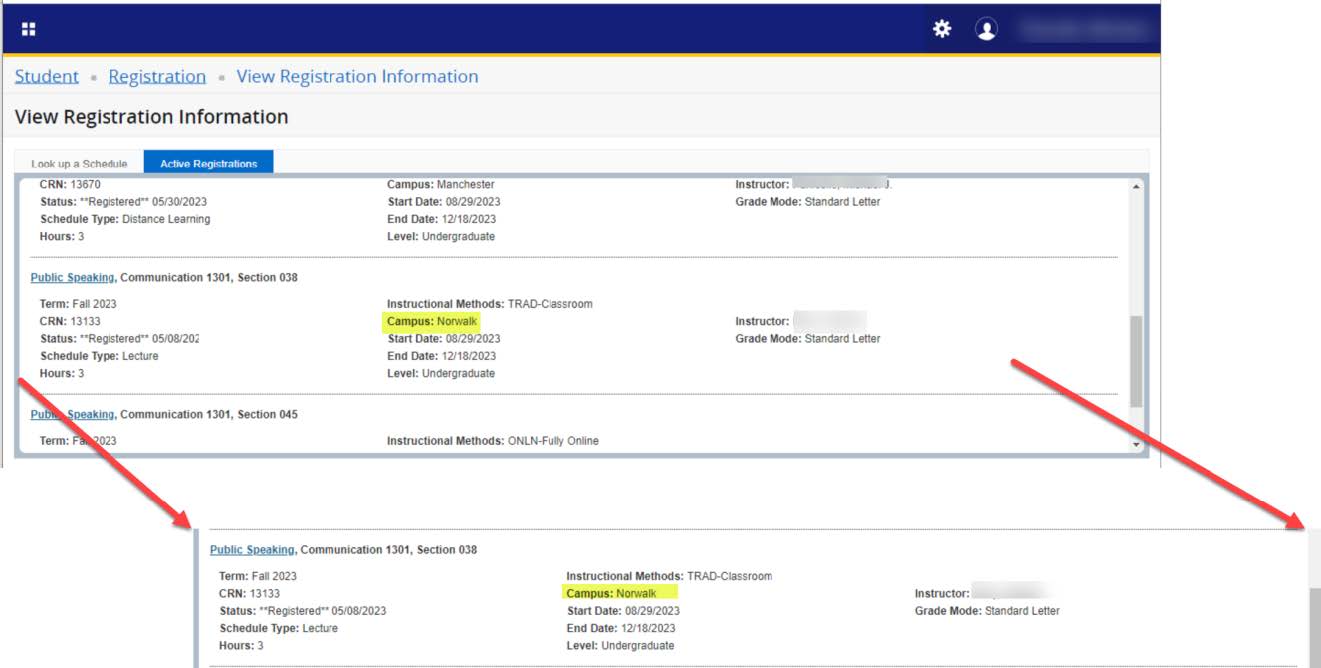
“Schedule Details” Course Information Displayed
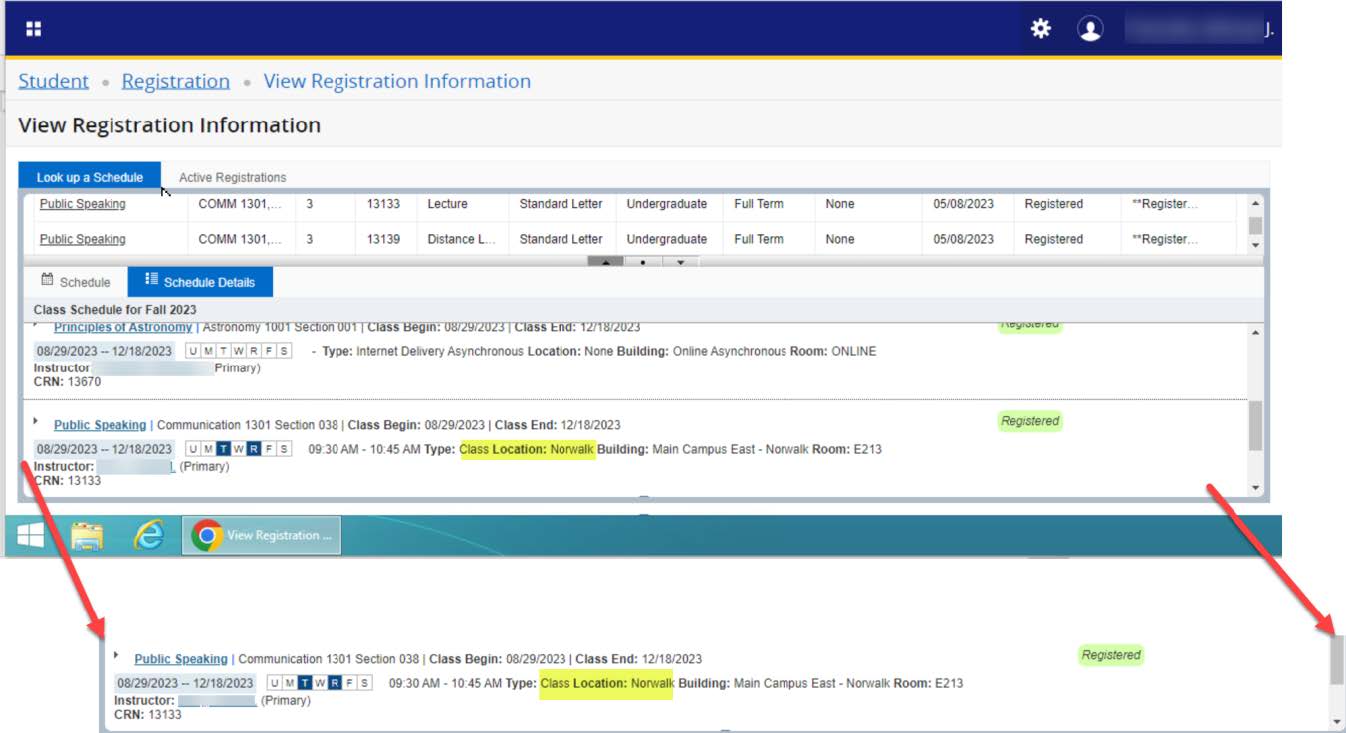
Step 7
Another way to view ONLY your current course schedule is by clicking on the link titled “Register for Classes” on the registration menu.

Step 8
Select the current/open registration term from the dropdown menu. (Make sure you select “TERM” under the header “How would you like to search?”).

Step 9
The selection of the term will bring you to your registration screen. On this screen, select the tab titled “Schedule and Options” to view a summary of the courses you are currently registered for.
This screen will also display your course by day and time within a week.
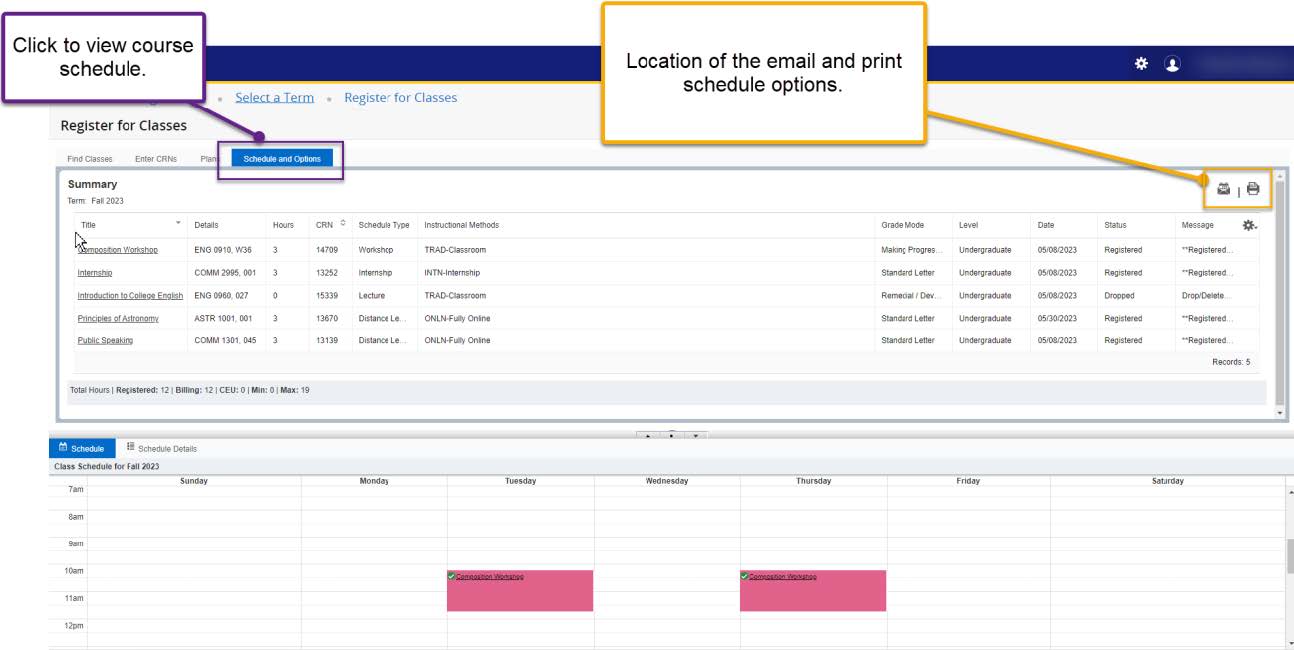
Step 10
To view a detailed copy of your course schedule, click on the tab titled “Schedule Details.”
*The location the course is held at will be next to the header titled “Location.”
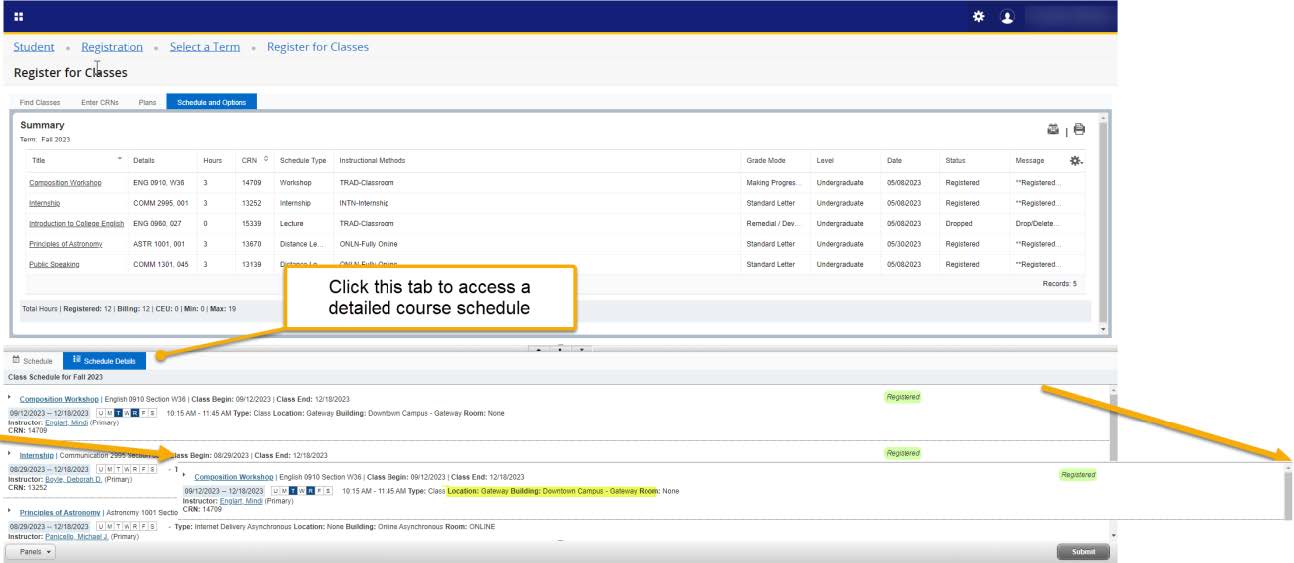
- Hits: 60374

